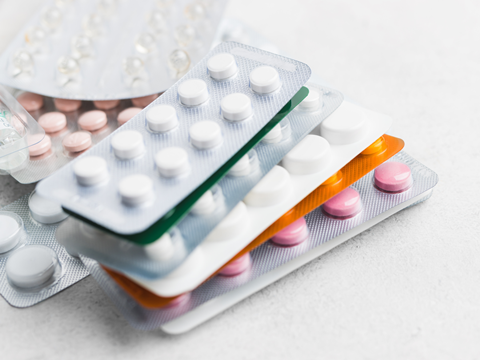
Carbios and Selenis have signed a Letter of Intent to recycle PET cosmetic and healthcare packaging waste into PETG using enzymatic depolymerization technology.
PETG is described as an ‘indispensable’ material for cosmetics and healthcare packaging because of its clarity, durability, mechanical and chemical resistance. Its properties are also highlighted as important to the performance, sterility, transparency, and optical brightness of medical and pharmaceutical packaging – especially complex medical device packaging, pharmaceutical blisters, or other packaging and diagnostic equipment.
Therefore, by combining Selenis’ polymerization expertise with Carbios’ enzymatic depolymerization technology, the partners plan to convert PET waste from the European and American cosmetic and healthcare industries into a premium PETG material.
Enzymatic depolymerization breaks PET waste down into PET and PTA monomers – said to be pure enough that, when Selenis applies its advanced polymerization processes to create recycled PETG, the result possesses the same properties as virgin PETG. As such, products can be packaged in thick, moulded pots and lids.
Apparently, the bio-recycled PETG meets the strict requirements for cosmetic and healthcare packaging, with Carbios and Selenis completing ‘extensive’ pilot and industrial polymerization trials to refine the final product’s quality.
Carbios CEO Emmanuel Ladent commented: “Carbios and Selenis have a long collaboration, and we are pleased to build on this established relationship to produce PETG issued from CARBIOS’ unique bio-recycling technology.
“This high-specialty, premium material meets demanding quality requirements whilst also contributing to the transition to more sustainable packaging materials. The partnership will open new markets for Carbios, notably the healthcare sector, as we continue our worldwide commercial deployment.”
“This collaboration marks an exciting step in our mission to drive sustainability in the polymerization industry,” adds Eduardo Santos, head of Corporate Strategy at Selenis. “By combining our 65 years of expertise with Carbios pioneering bio-recycling technology that ensures high-quality monomers for the production of virgin-like PETG, we are advancing in the development of sustainable materials to meet the growing demand for environmentally responsible solutions in the cosmetic and healthcare sectors.
“Together, we have the potential to reshape the future of sustainable plastics.”
The news comes after Carbios signed a Letter of Intent with FCC Environment UK to take an evidence-based view on the advantages of using enzymes to treat and recycle PET in the UK. Although recycling is said to have plateaued in the region, FCC supports government policy pushing for circularity and believes that developments in bio-recycling could play a role.
Additionally, researchers at the University of California, Berkeley have developed a new chemical process said to ‘essentially vaporize’ polyethylene, polypropylene, and mixed-plastic waste into building blocks for repolymerization. The process is expected to reduce the fossil fuels required to make new plastics and unlock circularity for various single-use plastics, including clear PET water bottles.
If you liked this story, you might also enjoy:
The ultimate guide to the Packaging and Packaging Waste Regulation in 2024
How are the top brands progressing on packaging sustainability?
Sustainable Innovation Report 2024: Current trends and future priorities
Everything you need to know about global plastic sustainability regulation














No comments yet